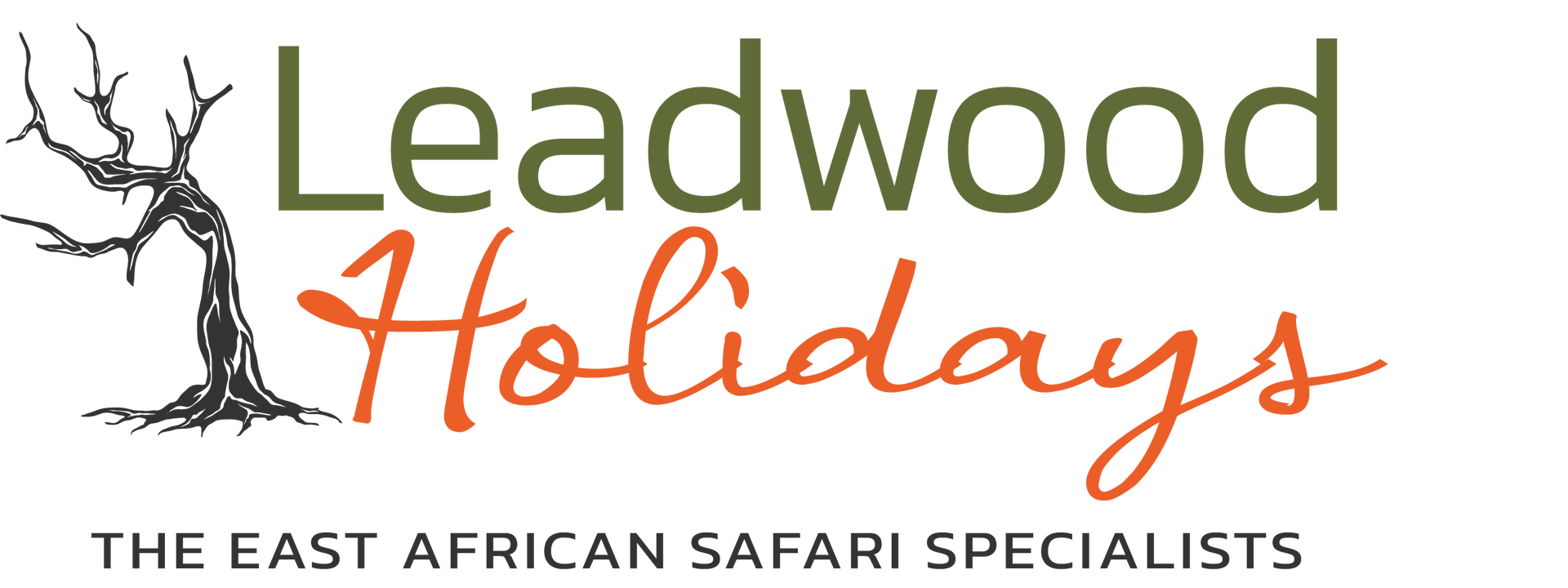VISAS
Please be aware that the Tanzania immigration department has recently changed the process for issuing visas on arrival. Clients arriving without a visa will now need to complete an online form, which may take some time, queue to make the payment, and then queue again to receive the visa. This process can take over two hours, depending on the number of people arriving at the same time.
We strongly recommend applying for your visa online as it may take between two and three weeks to receive. Obtaining your visa before arrival will help you avoid the long queues. While efforts are being made to speed up the process, we feel this is the best option for now.
For Kenya, you must obtain a visa before you travel as visas on arrival are not available. The good news is that the process is fairly quick and easy and most nationalities can apply online here www.evisa.go.ke
Most nationalities – except 43 exempt nationalities – require a visa to enter Kenya for travel, business or transit purposes. Check the official eligibility list for more information.
VACCINATIONS
Visitors should carry an International Certificate of Vaccination against Yellow Fever, which must be issued at least 10 days before departure. Some nationals are exempt from the Yellow Fever requirement. Contact us to confirm if you need a certificate. For cross-border safaris, the certificate is required even if your nationality is exempt.
Anti-malaria tablets are highly recommended and should be taken a few days prior to arrival, during your stay, and for a period after returning. Malaria is one of the largest health risks for both visitors and locals, so we strongly encourage all guests to take the full prescribed course of medication. Additionally, it’s helpful to keep your arms and legs covered, particularly at dusk and dawn, and to use a mosquito repellent containing DEET.
If you have sensitive digestion, you might wish to bring medication such as Imodium or Kaopectate, as changes in food and water can cause minor stomach upsets. Over-the-counter medication is usually sufficient.
BAGGAGE ALLOWANCES
Baggage is limited to 20kg per person on domestic flights within East Africa and 15kg for small plane/chartered flights to safari destinations. Soft-sided luggage or duffel bags are preferable to hard luggage for storage in safari vehicles and on aircraft within Africa.
Large, hard-sided suitcases exceeding dimensions of 24″ x 17″ x 7″ are impossible to store in vehicles and aircraft, so they should not be used. Baggage and personal effects are carried at the owner's risk throughout the tour, and we strongly recommend baggage insurance. Please avoid hard-sided suitcases. Soft-sided duffel bags are ideal for safaris.
MONEY
The currency of Tanzania is the Tanzanian Shilling (TZS), which is also used in Zanzibar, while Kenya uses the Kenyan Shilling (KES). You can exchange foreign currency at the airport or in major towns, where rates are generally better.
The preferred currency is the US Dollar (USD). We recommend exchanging enough money for personal expenses like shopping, meals, and drinks in town restaurants, while keeping the rest in USD. Most tips, gifts, and drinks can be paid for in dollars.
Please note that US$100 and US$50 bills printed in or before 2006 are not accepted in Zanzibar or Tanzania.
Credit cards are accepted at larger hotels and some restaurants, though a percentage may be added as a bank fee. ATMs are available only in major towns.
TIPPING
Tipping is a way of showing appreciation for your safari guide and crew. It is customary to tip for good service, and if the service exceeds your expectations, a generous tip is encouraged. Below is detailed information on tips to simplify the process.
Please note that all staff are paid a fair wage, so tips are not their sole source of income. However, tips do provide valuable additional support. Each group of up to seven clients on a wildlife safari will share one vehicle with a driver/naturalist. Camping safaris also include one cook and one camping crew member.
Contact us for current tipping guidelines.
CAMERAS
Safaris offer an unparalleled opportunity for scenic and wildlife photography, and a camera is strongly recommended. Most animal activity occurs during the crepuscular hours (dusk and dawn), which provides excellent lighting. You may witness breathtaking moments such as a predator making a kill or a lioness introducing her cubs to the pride, so having a camera handy is essential.
Don’t forget to bring your battery charger or spare batteries and a plug adaptor (see Electronics section below).
CLIMATE & WEATHER
The climate is hot and sometimes humid. From December to mid-March, the north-east monsoon brings hot and humid conditions. From mid-March to May, heavy rains occur, while June to October is the coolest and driest period. Lesser rains fall in November.
Temperatures range between 25°C and 35°C, with annual rainfall around 20 mm. On higher ground, such as the Ngorongoro Highlands, temperatures can occasionally drop below 15°C.
CLOTHING & MISCELLANEOUS ITEMS
 Button
ButtonLight, neutral-coloured clothing is recommended. Bright colours should be avoided on game drives, while dark colours, particularly blue and black, attract tsetse flies. Daytime temperatures can reach the low 30s°C, while evenings, especially during certain seasons or in specific locations, can be much cooler.
Safari attire should be casual, comfortable, and modest. While you may want something slightly nicer for dinners at the lodge, it should still be lightweight and easy to pack.
Please note that the use of plastic bags is strictly prohibited in East African countries. It is illegal to produce, import, sell, or use plastic bags, and heavy fines and penalties are imposed.
STAYING HEALTHY
It is important to stay hydrated throughout your safari. Leadwood Holidays will provide ample bottled water for your safari, including for your room or tent. East Africa is arid, and the sun is intense, so hydration is essential. Bottled water is served in all restaurants and lodges. However, remember to use it when brushing your teeth and avoid opening your mouth in the shower.
Our drivers anticipate bathroom breaks. Just let them know in advance, and they will find the nearest facility. Because East Africa is near the equator, and the sun is strong, you will need a brimmed hat, sunglasses, and sunblock. Covering your limbs during peak sun hours is advisable, especially if you burn easily.
When it comes to insects, mosquitoes and tsetse flies are the primary concerns. In addition to malaria tablets, wear long sleeves and trousers at dusk and dawn. Always use insect repellent and ensure your mosquito net is in place before sleeping. If the net is missing, please let your guide know immediately.
ELECTRONICS
 Button
ButtonEast Africa uses UK-style three-pronged plugs and operates on 220V. Most chargers are compatible, but you will need an adapter if travelling from a country that doesn’t use UK plugs.
Travelling to Kenya you will need to use travel adaptor G also known as the standard British 3-pin rectangular blade plug or the “13-amp plug” for 240V 50Hz.
Travelling in Tanzania you will need to bring both the electric travel adapter D and G. For Rwanda there are two associated plug types, types C and J. Plug type C is the plug which has two round pins and plug type J is the plug which has three round pins. Rwanda operates on a 230V supply voltage and 50Hz.
Camps and lodges often run on generators, so electricity may only be available during certain hours. These times will be posted, allowing you to charge your devices. Most mobile phones are quad-band and will work in East Africa, and there is good reception in most towns and some hotels. Your driver will advise where reception is strongest.
WILDLIFE
All animals in the national parks are wild and untamed, and their behaviour can be unpredictable. While wildlife attacks are rare, maintaining a safe distance is crucial. Most animals will flee from humans, but if provoked or cornered, they may defend themselves.
You will be accompanied by licensed guides who are highly trained and have an in-depth understanding of wildlife.
CHECK OUT OUR SPECIAL OFFERS
Our partners






Our partners






Our partners






MEC Building 4th Floor, Mianzini, Arusha, Tanzania
A: Westlands Business Park 6th Floor, Chiromo Lane, Nairobi
P: +255769253681 / +254724731331 (on WhatsApp)
E:info@leadwoodholidays.com
W:www.leadwoodholidays.com
MEC Building 4th Floor, Mianzini, Arusha, Tanzania
A: Westlands Business Park 6th Floor, Chiromo Lane, Nairobi
P: +255769253681 / +254724731331 (on WhatsApp)
E:info@leadwoodholidays.com
W:www.leadwoodholidays.com
MEC Building 4th Floor, Mianzini, Arusha, Tanzania
A: Westlands Business Park 6th Floor, Chiromo Lane, Nairobi
P: +255769253681 / +254724731331 (on WhatsApp)
E:info@leadwoodholidays.com
W:www.leadwoodholidays.com
COPYRIGHT LEADWOOD HOLIDAYS. ALL RIGHTS RESERVED
DESIGNED & POWERED BY: THE SAFARI COLLECTIVE
COPYRIGHT LEADWOOD HOLIDAYS. ALL RIGHTS RESERVED
DESIGNED & POWERED BY: THE SAFARI COLLECTIVE
COPYRIGHT LEADWOOD HOLIDAYS. ALL RIGHTS RESERVED
DESIGNED & POWERED BY: THE SAFARI COLLECTIVE
